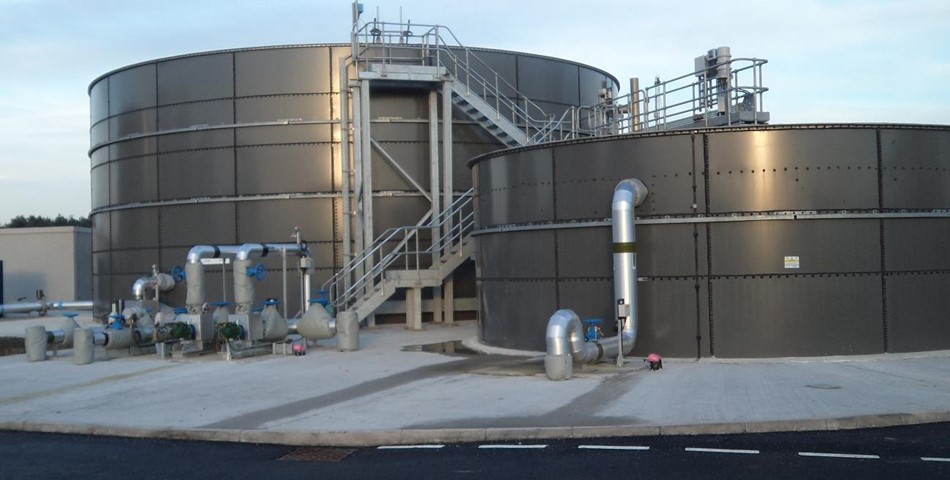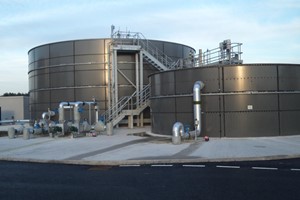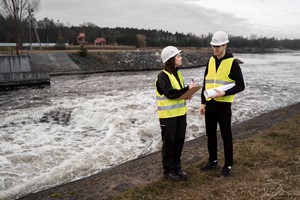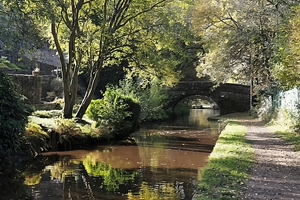Sludge as an asset
With as much as 50% of the cost of running a wastewater plant spent on energy it makes sense to look at alternative sources of power. Now falling subsidies and rising energy costs are also encouraging utilities in the Gulf States to consider new ways of generating power from waste. Using advanced digestion could allow utilities in the region to slash their energy bills and even move towards becoming energy neutral. However the most effective systems also create hard to treat waste streams, which should be considered when designing plants which will convert wastewater sludge into renewable energy. High ammonia levels in treated wastewater can lead to environmental pollution as well as making the water unsuitable for re use.
Ammonia concern
Globally there is an increased emphasis on promoting water re-use wherever possible, so this also needs to be considered when designing wastewater treatment. ACWA has been a leading expert in industrial and municipal wastewater in the UK and other regions for more than thirty years. In 1991 the UK company was acquired by Consolidated Contractors Company, which reinforced its position as a global concern and created strong links to the Gulf. Since 2006 the company has had a Middle Eastern office in Dubai. ACWA began researching ways of dealing with the high ammonia levels created by advanced digestion in the late 1990s, when it was asked by a consortium of UK water companies to look at ways of tackling ammonia in centrate, the liquor spun off by sludge thickening and centrifugal processes. Rising energy prices and environmental concerns were leading UK utilities to consider sludge as an asset, rather than as something to be disposed of. By using advanced digestion, sludge from the treatment works could be converted into biogas, which can then be used to power the plant, or even, in some cases to sell back to the grid.


Advanced Digestion
Advanced digestion (AD) is already widely used by industrial users, such as food and drink manufacturers in the Gulf States but is increasingly being used by municipal users, with many wastewater plants around the world aiming to become energy neutral. Using sludge to generate biogas is a popular option in the UK, with a number of utilities establishing regional AD centers, which take in sludge from surrounding plants and convert it to energy using advanced digestion. In advanced digestion the effluent is heated at the start of the process, which significantly increases the amount of biogas produced. However advanced digestion also leads to high levels of ammonia in the post centrifugal liquors. The more effective the biogas producing process, the higher the level of ammonia - which gave utilities a practical, environmental and economic problem. Levels of ammonia in post AD liquor is typically around 1,500 mg per liter but can be as high as 2,500 per liter. If this liquor is fed back into the start of the process the ammonia levels can be so high it can reduce the efficiency of the plant. In order to deal with the high ammonia liquor produced as a result of the advanced digestion process, ACWA developed the Amtreat system, a modified activated sludge treatment which is adjusted to suit the strength and the volume of effluent to be treated. Extra nutrients are added to help boost the biological process in order to deal with the high strength liquor.
Amtreat in action
The Amtreat system is now being used at seven sites across the UK and with advanced digestion gaining ground, many other municipal authorities are also looking at the process. The latest completed project is a USD2 million ammonia treatment removal plant for United Utilities at the Leigh Wastewater Treatment plant in Greater Manchester. The project, awarded by framework contractor KMI Plus, is part of an overall upgrade to the Leigh plant to improve sludge recycling and disposal within Nitrate Vulnerable Zones. The Amtreat plant, which was completed in September 2016, is capable of treating 805m3 per day, with a minimum 95% ammonia removal. In the operation, the treated effluent is pumped back to the head of the treatment process. Leigh, which acts as a processing center importing sludge from outlying sites treats the sludge utilizing advanced digestion and dewatering which generates high strength ammonia liquors. These include centrifuge liquors from both raw sludge thickening and digested sludge de-watering processes. For United Utilities one key advantage is that the technology used in the ammonia removal plant is familiar within the industry. The project incorporates an anoxic tank, an Amtreat reactor, chemical dosing, settlement tank, stilling tube, heat exchanger and boiler, pumps, blowers, instrumentation and control room. A smaller footprint, compared to conventional activated sludge processes is a further advantage, especially as the plant was constructed within a restricted space. Liquor temperature can be maintained at a constant temperature using a heat exchanger and boiler, which means there is no seasonal variation. ACWA has also worked extensively with Anglian Water, providing additional high strength effluent treatment to complement its heating, pasteurization and hydrolysis (HpH) plants, which also produce streams with high levels of ammonia.


A new source of power
Advanced digestion is already currently used in many industrial wastewater plants in the Gulf, and with rising energy costs and a wish to promote renewable sources of energy, it is highly likely that municipal authorities in the region will be looking closely at the possibility of producing biogas from sludge. Installing new anaerobic digestion systems is a major investment for utilities, but one which can pay off in terms of reduced energy costs and additional sources of income. The initial capital investment can lead to long term savings in terms of reduced maintenance and running costs. ACWA can retrofit the Amtreat system to existing plants, but a far better answer is to install additional ammonia treatment when building a new advanced digestion plant. By including a system that is purposely designed with a focus for treating high ammonia levels from the outset, advanced digestion plants can ensure maximum efficiency from day one, as well as reducing the risk of environmental pollution. The company with more than thirty years experience of dealing with hard to treat wastewater is perfectly placed to advise municipal wastewater authorities in the Gulf States who wish to embrace the potential of renewable energy and water re use. With an increased emphasis on need to reuse resources it is more important than ever that the process of generating energy from waste is managed well from the outset and that everything is done to make the process as efficient, as stable and as environmentally friendly as possible.
Email: acwa@acwa.ae
Web: www.acwa.co.uk














